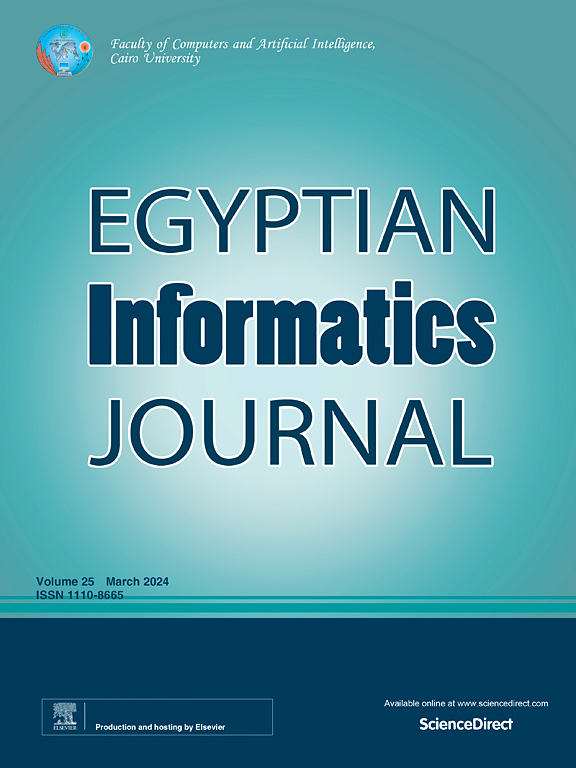Cognitive semantic communications in 6G wireless networks using a digital twin approach
IF 4.3
3区 计算机科学
Q1 COMPUTER SCIENCE, ARTIFICIAL INTELLIGENCE
引用次数: 0
Abstract
This paper introduces an advanced Cognitive Semantic Communication (CSC) framework enhanced through Digital Twin (DT) technology to meet the evolving demands of intelligent and adaptive communication in sixth-generation (6G) wireless networks. Unlike traditional semantic systems that depend on static knowledge representations, the proposed DT-Based CSC incorporates real-time system modeling, dynamic knowledge graphs, and entropy-based reasoning to support predictive optimization and context-aware decision-making. Each communication node is paired with a digital twin that continuously reflects it’s physical, cognitive, and network states, allowing for proactive adjustments based on current conditions. A multi-objective optimization approach is used to balance semantic accuracy, energy efficiency, security, and latency. The framework emphasizes the transmission of meaningful and relevant information rather than raw data, thereby improving overall communication effectiveness. Simulation results confirm that the proposed approach offers substantial improvements over existing methods in terms of semantic precision, system reliability, adaptability, and secure information exchange. The digital twin integration enables the system to maintain stability even under dynamic network conditions, making it particularly well-suited for real-world applications. In conclusion, the DT-Based CSC framework offers a transformative advancement for future 6G communication systems, supporting intelligent services such as autonomous vehicles, smart infrastructure, and decentralized artificial intelligence.
使用数字孪生方法的6G无线网络中的认知语义通信
本文介绍了一种通过数字孪生(DT)技术增强的高级认知语义通信(CSC)框架,以满足第六代(6G)无线网络中智能和自适应通信的不断发展的需求。与依赖静态知识表示的传统语义系统不同,本文提出的基于dt的CSC结合了实时系统建模、动态知识图和基于熵的推理,以支持预测优化和上下文感知决策。每个通信节点都与数字孪生配对,该数字孪生持续反映其物理、认知和网络状态,允许基于当前条件进行主动调整。采用多目标优化方法平衡语义准确性、能效、安全性和延迟。该框架强调传递有意义和相关的信息,而不是原始数据,从而提高整体传播效果。仿真结果表明,该方法在语义精度、系统可靠性、适应性和信息交换安全性等方面都比现有方法有了很大的改进。数字孪生集成使系统即使在动态网络条件下也能保持稳定性,使其特别适合实际应用。总之,基于dt的CSC框架为未来6G通信系统提供了变革性的进步,支持自动驾驶汽车、智能基础设施和分散人工智能等智能服务。
本文章由计算机程序翻译,如有差异,请以英文原文为准。
求助全文
约1分钟内获得全文
求助全文
来源期刊

Egyptian Informatics Journal
Decision Sciences-Management Science and Operations Research
CiteScore
11.10
自引率
1.90%
发文量
59
审稿时长
110 days
期刊介绍:
The Egyptian Informatics Journal is published by the Faculty of Computers and Artificial Intelligence, Cairo University. This Journal provides a forum for the state-of-the-art research and development in the fields of computing, including computer sciences, information technologies, information systems, operations research and decision support. Innovative and not-previously-published work in subjects covered by the Journal is encouraged to be submitted, whether from academic, research or commercial sources.
 求助内容:
求助内容: 应助结果提醒方式:
应助结果提醒方式:


